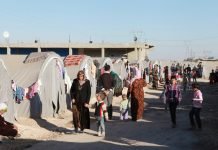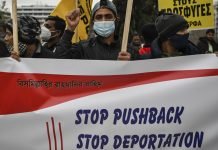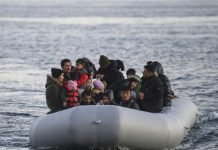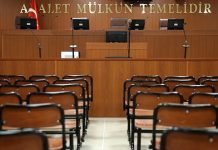“Turkey has done illegal renditions from more countries in the last six years than any other country in the world,” said Nate Schenkkan, Freedom House’s director of research strategy, on the removal of Turkish citizens from various countries that are dependent on Ankara for financial, political or humanitarian support.
Schenkan was speaking to the Financial Times for a report focusing on Turkey’s renditions, including both abductions by Turkish intelligence and deportations where there was little or no legal due process, of alleged members of the Gülen movement in the Balkan countries.
The Turkish government is accused of engaging in the systematic practice of state-sponsored extraterritorial abductions and forcible returns to Turkey, with at least 100 Turkish nationals from multiple states including Afghanistan, Albania, Azerbaijan, Afghanistan, Cambodia, Gabon, Kosovo, Kazakhstan, Lebanon and Pakistan removed to Turkey.
Turkish President Recep Tayyip Erdoğan has been targeting followers of the Gülen movement, a faith-based group inspired by Turkish cleric Fethullah Gülen, since the corruption investigations of December 17-25, 2013, which implicated then-Prime Minister Erdoğan, his family members and his inner circle.
Dismissing the investigations as a Gülenist coup and conspiracy against his government, Erdoğan designated the movement as a terrorist organization and began to target its members. He locked up thousands including many prosecutors, judges and police officers involved in the investigations as well as journalists who reported on them.
Erdoğan intensified the crackdown on the movement following a coup attempt on July 15, 2016 that he accused Gülen of masterminding.
According to Schenkkan, the illegal renditions “will never end, not as long as Erdogan is in power . . . this is such a high priority for them that they will sacrifice other foreign policy goals.”
In different cases the UN Working Group on Arbitrary Detention (WGAD) has concluded that the arrest, detention and forced transfer to Turkey of Turkish nationals were arbitrary and in violation of international human rights norms and standards.
In an opinion on the summary extradition of Arif Komiş, 44, Ülkü Komiş, 38, and their four children from Malaysia to Turkey in August 2019, WGAD expressed its concern “over the pattern that all these cases follow and recalls that under certain circumstances, widespread or systematic imprisonment or other severe deprivation of liberty in violation of the rules of international law may constitute crimes against humanity.”
Such rulings mean little to Ankara, said Schenkkan. “The message is that Turkey makes its own rules and will carve out its own space according to its own preferences no matter what international norms or laws might say — just like the great powers do,” he said.
















[…] Directorul de la Freedom House a vorbit într-un interviu acordat pentru Financial Times despre ilegalitățile pe care Turcia le-a făcut, printre care și expulzarea cetățenilor turci din diferite țări care sunt dependente de Ankara pentru finanțare, sprijin politic sau umanitar, citează Stockholm Center For Freedome. […]
[…] Directorul de la Freedom House a vorbit într-un interviu acordat pentru Financial Times despre ilegalitățile pe care Turcia le-a făcut, printre care și expulzarea cetățenilor turci din diferite țări care sunt dependente de Ankara pentru finanțare, sprijin politic sau umanitar, citează Stockholm Center For Freedome. […]
[…] Directorul de la Freedom House a vorbit într-un interviu acordat pentru Financial Times despre ilegalitățile pe care Turcia le-a făcut, printre care și expulzarea cetățenilor turci din diferite țări care sunt dependente de Ankara pentru finanțare, sprijin politic sau umanitar, citează Stockholm Center For Freedome. […]